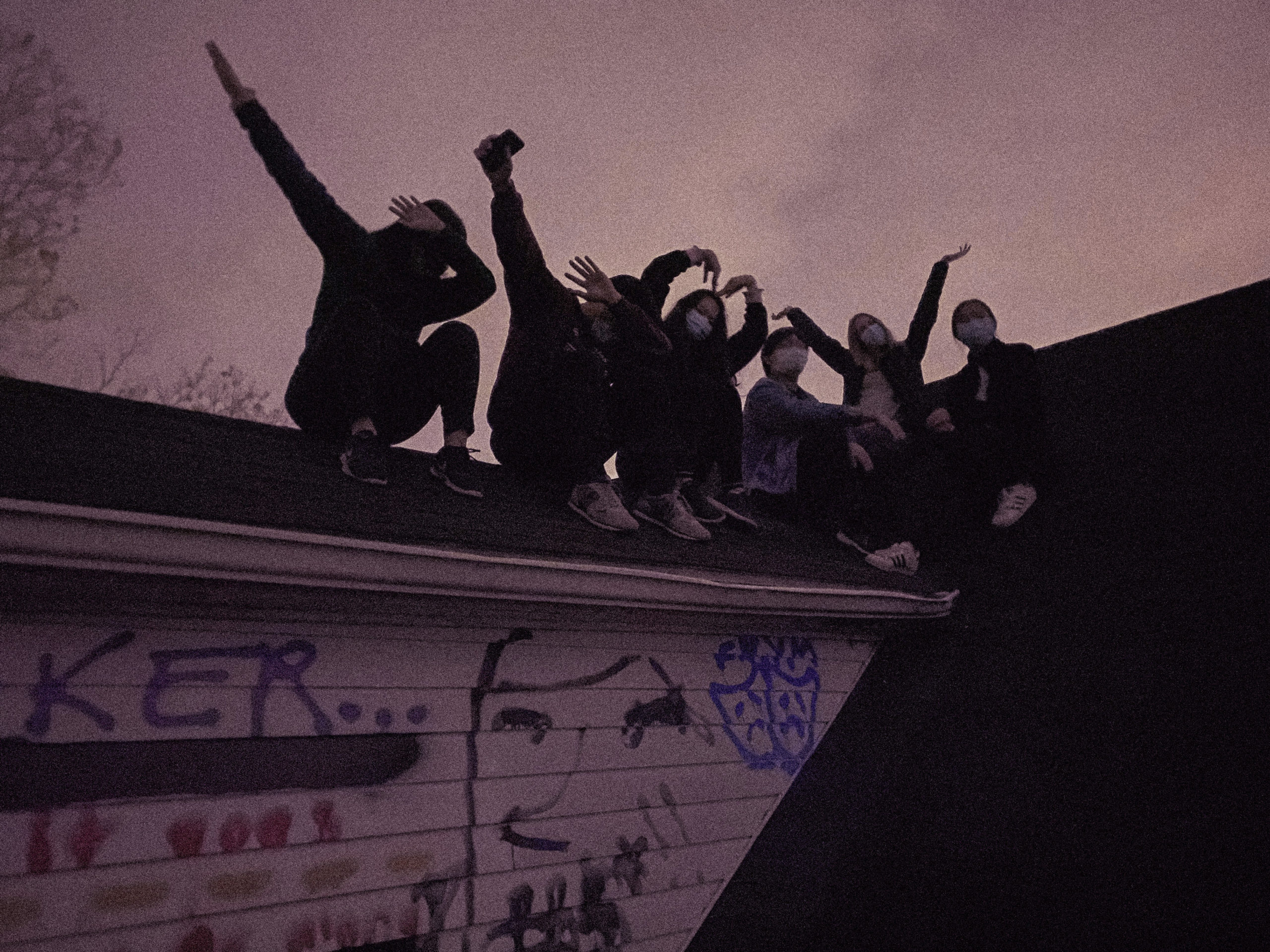“The Poet X” is a fresh take on the classic coming-of-age story
Every Country Day high school student was assigned to read “The Poet X,” written by Elizabeth Acevedo, over summer break. A book being assigned to the entire high school has never happened before, so, naturally, I wanted to see what all the buzz was about.
I was blown away by the writing style, and how it eloquently handled typical coming-of-age topics.
This tale is about our main character, Xiomara, and her struggle with poetry, religion, family and feelings. It’s executed in a way most ordinary coming-of-age stories aren’t: with originality..
Xiomara is a high school girl struggling with a lot of things—her body image, her pushy, very religious mother and her feelings, to name a few. She copes by writing amazing slam poetry!
Slam poetry is typically spoken out loud in competitions, so reading it is a real treat. Xiomara can lay down some mean rhymes in no time flat, but she doesn’t join the club for fear of being shamed by her mother.
The thing that immediately grabs your attention when opening the book is the formatting — the first clue as to the kind of writing you’re in for. The book is written as if it is part of Xiomara’s slam poetry notebook, so it has a much more intimate feel than most writing styles. This makes the subject matter feel grounded in reality.
The way the sibling relationships are portrayed in this story is incredible. The dynamic between Twin, Xiomara’s brother, and Xiomara, is so interesting. The way they bounce off each other in each passing poem is delightful to read.
“He is an award-winning bound book, where I am loose and blank pages. And since he came first, it’s his fault. And I’m sticking to that.” They both understand each other thoroughly, but they have their own secrets, too. Those tend to manifest significant blockades in their relationship, which adds another layer to their friendship.
Another thing to note is that Twin’s boyfriend and Xiomara’s secret relationship with Aman have some nice parallels in the story, as the mother disapproves of both, although for different reasons. The siblings aren’t letting the other know what’s eating away at them, even though their reasons are so hauntingly similar.
“The Poet X” doesn’t feel like a fictitious set of poems someone made solely for a book; it feels like they’re real, emotional poems that an actual person wrote when angry, or scared or happy. That’s an amazing thing about this book — just how authentic it feels when you’re reading it.
A great example of this is when Twin gets beat up, and his mother questions him.
“I don’t say a word to him and Twin’s face flinches in my hand. ‘No es nada. It’s nothing. It was just a misunderstanding.’ And although he’s answering her, his eyes are pleading with me.” It’s amazing, because the connection between the two is exceedingly clear, and the emotion in this quote is so intense that it takes a second to process. You feel like you’re really there in the moment with Xiomara.
Another element that’s a key player in this book’s importance is the way the author handles religious topics. Religion can be a hard thing to talk about, but “The Poet X” nailed it perfectly.
The way Xiomara describes the church and the Sunday school gives a great sense of atmosphere, and the conflict of a supportive priest and a strict mother serves to illustrate the importance of poems to Xiomara even further. Xiomara’s mother punishes her for the poems she writes by making her kneel on rice and pray.
“Mami prays and prays while my knees bite into grains of rice. Mami repeats herself while her statue of The Virgin watches. The whole house witnesses as I pay this steep, steep price.”
An interesting theme in this book is the importance of music. Even though this was a minor subplot, the addition of it makes the relationship between Xiomara and Aman, Xiomara’s secret boyfriend, feel deeper. They both share a love of music and understand that it helps them connect emotionally.
“I close my eyes, and find in music what I’ve always searched for: a way away.” This should be talked about more in books. It’s an intriguing addition that enhances the story wonderfully.
There were some ways this story could have improved, most notably in the pacing.
Reading this book feels like moving through a whirlwind of daily life with days, even weeks skipping by at a moment’s notice! It feels much too compact for the 357 pages that it is. This could be because it’s written in slam poetry. The writing style alone is worth the issues in pacing and context, though. It’s still a negative in my book, because I generally like to read books that feel a little slower.
In summary, many things make “The Poet X” a worthwhile read, like the writing style, the characters and the fresh take on the ever-stagnant coming-of-age genre. Overall, “The Poet X” is a great story, and it was an amazing choice for the highschool’s summer reading list.
[letsreview]
— By Natalie Park




Loved this review, Natalie! I also recommend listening to the audiobook because the author, Elizabeth Acevedo, has an amazing voice and cadence that lends itself perfectly to slam poetry. Acevedo has other books you might like if you liked this one. I read With the Fire on High this summer and her newest title is Clap When You Land. All are available at the library (sorry a shameless plug!)
When I was the Octagon adviser, reporters often assumed that because some event had never happened while they themselves were in high school, it had never happened in the school’s history. Having been at SCDS for 42 years, I had a lot of institutional memory and could often remember other instances. That’s true in this case. For many, many years all high schoolers read a single book over the summer. When school began, there were activities and projects related to that book. Four I remember teaching were John Steinbeck’s “The Grapes of Wrath,” Charles Dickens’s “Great Expectations,” and both George Orwell’s “1984” and Aldous Huxley’s “Brave New World.” In the first case speakers were brought in who talked about farm workers’ problems, and the entire high school visited a farm in Davis. In the second case, my husband Daniel Neukom and I had spent a year in Kent, England, site of many scenes in “Expectations.”. We photographed those places and created a slideshow. The dystopian books were assigned for the summer of 1983, six months before the year in the title (that seemed so far away when it was published in 1949 – No, I didn’t read it then because I wasn’t born yet!) began. And one year the history-department teachers demanded their turn to choose summer reading and selected Chinua Achebe’s “Things Fall Apart.” So the selection of “The Poet X” is actually a return to an old Country Day tradition!